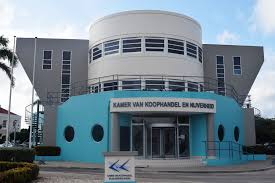Unpacking Aruba’s New Antitrust Law & my latest ebook, “Arubaans Mededingingsrecht”
Introduction
Effective January 1st, 2024, Aruba witnessed a significant milestone in its legal history with the implementation of its new antitrust law. This reform, deeply influenced by European and Dutch legal frameworks, is captured to the best of my ability based on the available information in my latest ebook, “Arubaans Mededingingsrecht.”I aim to share insights about this pivotal law and the ebook, including where it can be purchased online, to provide a perspective on Aruba’s evolving legal environment.
This comprehensive guide includes the new legislation and the explanatory notes – in general and per article – and contains hyperlinks to relevant legislation of the EU, the Netherlands, and EU and Dutch jurisprudence. My goal was to use my ability to blend in-depth legal insight with accessibility, making it a valuable resource in understanding Aruba’s evolving legal landscape.
The law
Aruba’s new antitrust law, effective January 1st, 2024, marks a significant transformation in its legal landscape, reflecting a growing alignment with international economic trends and standards. Minister of Economic Affairs Geoffrey Wever is the minister responsible for the authority and for this initiative. This law, influenced heavily by the legal frameworks of the European Union and the Netherlands, represents a major step towards fostering a more competitive and fair economic environment in Aruba.

Key legal definitions that provide clarity and guidance for businesses operating within Aruba’s economy are central to this reform. Notably, ‘market dominance’ is meticulously defined, drawing parallels to European Union standards. This definition lays out specific criteria for determining when a company holds a dominant position in the market and the responsibilities of such a position. The law also introduces the principle of ‘competitive neutrality,’ ensuring a level playing field for all market participants and preventing undue advantages that might distort the competitive landscape.
Another crucial aspect of the reform is establishing a dedicated regulatory authority, the Aruba Fair Trade Authority. This body is tasked with enforcing and overseeing the new standards set by the antitrust law. Its role is not just limited to monitoring and regulation but also provides guidance and clarity in applying these laws. This ensures that the businesses and legal practitioners in Aruba clearly understand the new regulations and their implications.
The impact of this law on the Aruban economy is, barring traditional bureaucracy and traditional government’s biases and monopolistic tendencies, expected to be substantial. By creating a more transparent and equitable business environment, it aims to encourage fair competition, innovation, and growth. This reform positions Aruba as a proactive player in the global economic arena, adhering to internationally recognized legal standards while catering to the unique aspects of its economy.
Scope
The Aruban Fair Trade Authority (AFTA), oversees and enforces competition law in Aruba. It ensures fair market practices, prevents anti-competitive behaviors, and promotes a competitive business environment. The Authority has an informative website. It includes some informative videos like this one.
The AFTA’s mandate includes investigating potential violations of competition law, assessing mergers and acquisitions for their impact on competition, and providing guidance on compliance to businesses and organizations. This authority is crucial in maintaining market integrity and consumer welfare in Aruba. The rules of Aruba’s competition law, as enforced by the Aruban Fair Trade Authority (AFTA), apply broadly to all economic activities. This includes businesses of all sizes and types, covering both public and private sectors. The regulations ensure fair competition across various industries, preventing practices that could harm market integrity or consumer interests.
Definitions
Based on a review of the legislation, here are four critical definitions from Aruba’s new antitrust law:
Market Dominance (Machtspositie): This term refers to a situation where one or more companies have significant market power. This power enables them to act independently of competitors, suppliers, customers, or end-users, affecting market competition. The definition is closely aligned with European Union standards, where market share, barriers to entry, and other factors determine dominance.
Competitive Neutrality: This principle ensures that no business in the market has undue advantages, maintaining a fair and competitive environment. It aims to prevent any distortions in the market that could arise from unequal treatment of businesses.
Abuse of Market Dominance: The law specifies what constitutes abuse of a dominant market position, including unfair pricing, limiting production, and discriminatory treatment of trading partners.
Regulatory Authority (Aruba Fair Market Authority): The body enforces the new antitrust law. Its role includes monitoring compliance, investigating potential violations, and ensuring fair market practices. These definitions are critical for understanding the scope and implications of the new law, as they set the framework for how competition is regulated and maintained in Aruba.
The proof is in the pudding
The legislation is ambitious. Some in the government classify this law as a game changer and are convinced that this will be good for the economy. Other commentators are less optimistic. Some are even pessimistic. I would expect, on the one hand, that the government will fully support the law and the AFTA and even lead by example in instances in which government institutions, public bodies, and government-owned corporations have relied on their unique relationship with the government to optimize revenue, capture a dominant market share or bluntly discriminate against private entities in favor of government-related entities. Illustrative for this was last year’s decision/statement by the government’s general medical insurance AZV that the private laboratories, despite their certifications – exceeding the government’s LABHOH – would be the only lab allowed to administer laboratory examinations prescribed by medical specialists. This move may well qualify as a violation of antitrust law as it directly undercuts private laboratories like Medlab and Laboratorio di Servicio. I am rather curious to see what the AFTA’s opinion would be on this situation. Perhaps I should submit this column on the tip line on their website. Or perhaps the AFTA can be proactive and take steps to look into this on their initiative, as per their mandate. Let’s see how this pudding comes out.
My latest eBook
“Arubaans Mededingingsrecht” is not just a publication; it’s an essential guide in the wake of Aruba’s legal transformation. It provides a detailed understanding of the new antitrust law, reflecting my commitment to demystifying legal complexities and enriching the professional community’s understanding. Get your ebook today at my shop.
Conclusion
This new law has the potential to be a game-changer. The board of the AFTA has a task ahead and a unique opportunity to change the game on many fronts. Time will tell. Meanwhile, be informed and learn how this new law can or will impact you. Contact me for more information, or get your copy today here.
#YourFavoriteColumnist#YourFavoriteLawyer #BoAbogadoFaborito #BoColumnistaFaborito
















